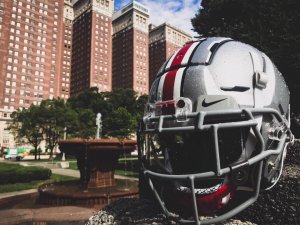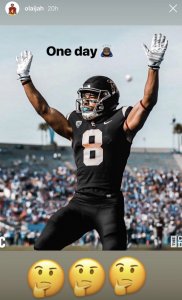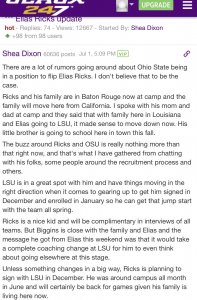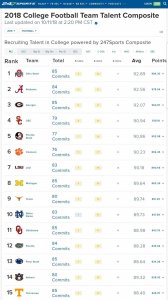“If there was an obvious choice to be our 12th team, that would probably be the way to go,” a source said. “But when the Big 12 was reportedly going to expand the last time (by taking some AAC members), our thought was we wouldn’t go to 12 just to have that number.”
FBS independents Army and BYU are the most likely candidates for the American’s 12th team, multiple sources said. “Both have many caveats,” a source said. It’s quite possible neither school wants to join, but as attractive as they are to the American, there are some concerns.
For Army, the Black Knights have been one of college football’s best stories the past couple of years. Back-to-back Commander in Chief trophies, a 21-5 record the last two seasons and three consecutive bowl victories.
However, prior to 2016, Army had losing records in 18 of its last 19 seasons. The Black Knights have benefitted from playing two FCS opponents each season – this year they face Morgan State and VMI. Would they be allowed to schedule two FCS teams a year in the AAC?
Also, their last go-around in a conference did not turn out well. From 1998-2004, Army was in Conference USA and never finished better than 3-8 overall in those seven seasons. Army left the league, in part, because it couldn’t be competitive. And remember: Six of those C-USA schools are now in the American.
“What happens if Army reverts back to the 20-year stretch before its current three-year success?” a source said.
A different and more significant concern would be how the Army-Navy game (if it was a conference game), played annually on the third Saturday in December, would impact the conference. Not only is the AAC league title game played a week before the Army-Navy game, but the College Football Playoff rankings are released six days before the game is even played.
That could be a major hurdle with no easy solution.
As far as BYU, the Cougars were nearly AAC members several years ago but the sides couldn’t reach an agreement.
“We were very close with BYU years before the last television deal, but they had too many demands and wanted to be treated differently on TV rights than other members,” a source said.
In other words: BYU wanted more TV revenue than the other league members.
“BYU does provide a potential late-night (TV) window and weeknight games and a (national) brand,” a source said.
But BYU might want to stay where it is: as an independent that has a television deal with ESPN that is expected to be renewed, a source said.
So the American has to make a decision in the next several months: stay at 11 or get back to 12?
“Is 11 better? With fewer pieces of the pie there is more revenue for the 11 schools to split than 12. Plus there’s no perfect or obvious choice as our 12th member.”
Another source admitted that “other than the service academies and perhaps BYU, I can’t see anyone rising up that makes it better to add than to stay pat at 11.
“I guess,” he said laughing, “we sound like the Big 12 when it decided not to expand a few years ago.”




































